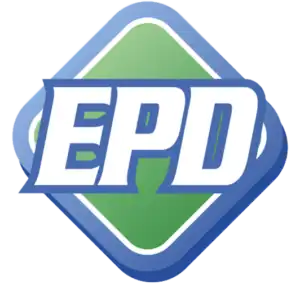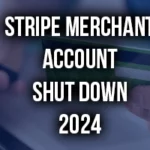While someone with poor credit will have a more difficult time receiving a business loan than a person with a high credit score, there are loan options available for those seeking a startup loan with bad credit.
Keep in mind that small business owners may have good personal credit scores, but bad credit scores for the business. The same holds true when small businesses have little or no credit history.
What are Startup Business Loans?
Startup business loans can help companies that are just beginning their operations.
This type of small business loan may not have the collateral requirements or minimum credit score that traditional business loans entail.
You can improve the odds of receiving a startup business loan by putting together a detailed business plan.
However, startups with bad credit may not qualify for conventional startup business loans.
What is a Bad Credit Score?
Before pursuing a startup business loan, check out your personal credit score. The higher your FICO score and the better your personal credit history, the more likely you are to qualify for traditional business loans and receive the loan amount desired.
A good credit score is at least 700. That should make your enterprise eligible for most business loans, as it meets minimum credit score requirements. To qualify for an SBA loan, credit scores of at least 690 are necessary.
An acceptable credit score ranges between 650 and 700. At this level, you may still qualify for a business loan, although there are limitations. An alternative lender may help you with a startup loan.
If the credit score runs between 620 and 650, you may need some time to build up a better credit history to get traditional financing options.
A bad credit score falls between 500 and 550. While that does not mean startup financing is out of the question, your loan options are much more limited.
Try to boost your credit scores before seeking small business financing.
What Collateral is Necessary for Small Business Loans?
Collateral is any valuable property the lender can sell if the business owner does not repay the loan.
Collateral for a small business loan may include personal assets, such as a house or motor vehicle.
Preferred collateral includes securities, such as stocks and bonds, certificates of deposit, and other assets that are easily liquidated.
What is Equipment Financing?
Equipment financing allows businesses to borrow money for equipment while using the equipment as collateral.
While the equipment will depend on the business and industry, it could include:
- Commercial vehicles
- Machinery
- IT
- Equipment inventory
This type of small business loan depends on the equipment value. While it can improve business credit, the inability to make payments guarantees bad credit and can spell the end of the business endeavor.
What are Unsecured Business Loans?
Unsecured business loans are those secured by the small business owners’ creditworthiness. To qualify, the lender looks at the personal credit score and the business credit history.
Other considerations include the time the business has been operating, its annual revenue, and the capacity for repayment.
Such loans are not available as bad credit business loans.
What is a Personal Guarantee for Business Loans?
Not every lender requires specific collateral. In some circumstances, if the small business owner offers a personal guarantee, the bank could approve their loan. That means the individual promises to repay the amount borrowed.
If the business owner cannot pay the loan amount, a personal guarantee puts their personal assets at risk. Lenders seek as little risk as possible when making business loans, and personal guarantees reduce the risk considerably.
A personal guarantee is common in small business funding. For instance, depending on the loan type, the Small Business Administration (SBA) requires anyone with a stake of 20% or more to take part in a personal guarantee loan agreement.
How Can I Get a Small Business Startup Loan With Bad Credit and No Collateral?
Bank loans and SBA loans require minimum credit report scores. These are not where those with bad credit and no collateral can get startup financing.
Look for those companies specializing in providing startup loans for those with bad credit and few personal assets to serve as collateral.
How Can I Get Financed to Start a Business With Bad Credit?
Those with a less than stellar credit history may have a hard time receiving loan approval from traditional banks and credit unions.
Online lenders specializing in startup business loans require a credit history. The minimum credit score necessary may vary by lender.
While this is a common way for entrepreneurs to receive bad credit business loans, keep in mind that the fees are higher than standard small business loans.
Types of Bad Credit Business Startup Loans
Small businesses have several loan options for bad credit business startup loans. These include:
- Business lines of credit — Fund a start-up loan with bad credit with this option. Business lines of credit allow you to access funds as needed up to your borrowing limit. Because you only use what you need, there is more flexibility with these loan options.
- Business credit cards — This is a good option for a startup business loan, as the credit card issuer uses the applicant’s personal credit score rather than that of the business. If the applicant has poor credit, a business credit card is still a loan option as a secured credit card or prepaid debit card.
- Invoice financing or invoice factoring — Small business owners can borrow against unpaid invoices, which is known as invoice financing. Invoice factoring involves accessing unpaid customer invoices and selling them to a third party.
- Personal loans — Even those whose personal credit scores are not that high may qualify for personal loans geared for individuals with bad credit. However, this should be a last resort if unable to get a business loan with bad credit.
How Can I Boost My Business Credit Scores to Expand My Financing Options?
By boosting your business credit score, you can make your small business more attractive to lenders. You could even qualify for conventional small business loans.
Paying creditors on time is a great way to increase your business credit score.
What are the Best Startup Business Loans?
SBA loans are among the best business startup loans, but as noted, require a minimum credit score of 690. Less than stellar credit that is not actually poor credit may allow you to work toward eventual SBA approval.
The SBA limits the best startup business loans to those with good business credit scores. These startup business loans are not available to businesses with poor credit.
For startups with bad credit, online business loans are among the best financing options. US News and World Report recommends:
- BlueVine – Minimum FICO score 530. Offering term loans, invoice factoring, lines of credit. Considered best for those with bad credit.
- OnDeck – Minimum score undisclosed. Offering lines of credit and term loans. Best for short-term loans.
- Rapid Finance – Undisclosed minimum FICO score. Offering Small Business Administration bridge loans, invoice factoring, lines of credit, term loans. Best for its range of products.
These forms of financing for bad credit business loans are not the only alternative.
Are There Alternatives to Bad Credit Business Loans?
A merchant cash advance is often a better option for a business owner than a bad credit business loan.
That’s where Easy Pay Direct can help small businesses get funding instead of a bad credit business loan or bad credit startup loan.
What are Merchant Cash Advances?
With merchant cash advances, an online lender advances the funds against how much the company sells in credit card sales over a six to twelve-month period.
The lender holds back between 10% to 20% of the daily credit card sales to repay the advance.
Easy Pay Direct operates in this fashion.
While the personal credit score of the business owner does factor into eligibility for a merchant cash advance, it is not the primary criterion. Nor is the business credit score.
The type of business and the monthly credit card sale amount are the most important factors.
Are Merchant Cash Advances the Same as Business Loans?
While similar, they are not synonymous.
Merchants repay advances as a factor of the loan.
For instance, if the lender advances the merchant $100,000, and the factor is 1:22, the amount paid back is $122,000.
Advantages of Merchant Cash Advances
Unlike a standard small business loan or bank loan, merchant cash advances do not require collateral. You can receive your business funding quickly.
As a business owner, you know the best way to use the financing for your enterprise, and you can choose how to use the advance.
You can get an advance even with less than stellar credit.
Is There a Downside to a Merchant Cash Advance?
A merchant cash advance is available only to those businesses accepting credit card payments.
It does not help the business boost its credit score.
What About Crowdfunding?
For startups with bad credit, crowdfunding is an alternative means of financing. It is low risk, but it might not be suitable for all businesses.
Crowdfunding contributors are not investors, so they do not receive shares, but may receive a product or some other perk for their contributions.
Pay careful attention to the legal language in the crowdfunding platform to understand your obligations.
How Easy Pay Direct Can Help
At Easy Pay Direct, we have loan options for small businesses seeking business loans or merchant cash advances.
We help small business owners get the business funding they need no matter their FICO score or credit history. We want small businesses to succeed.
We provide loans for businesses with bad credit by partnering with our network of financial institutions.
Easy Pay Direct allows you to get the startup business loan you need to realize your entrepreneurial dreams. Fill out our online application to get started.
In most cases, account approvals take between two to five business days once we receive all documents.
For more information, please contact us at 800.805.4949 or get started here.
Unsecured Business Funding for Small Business Owners Explained (sba.gov)










